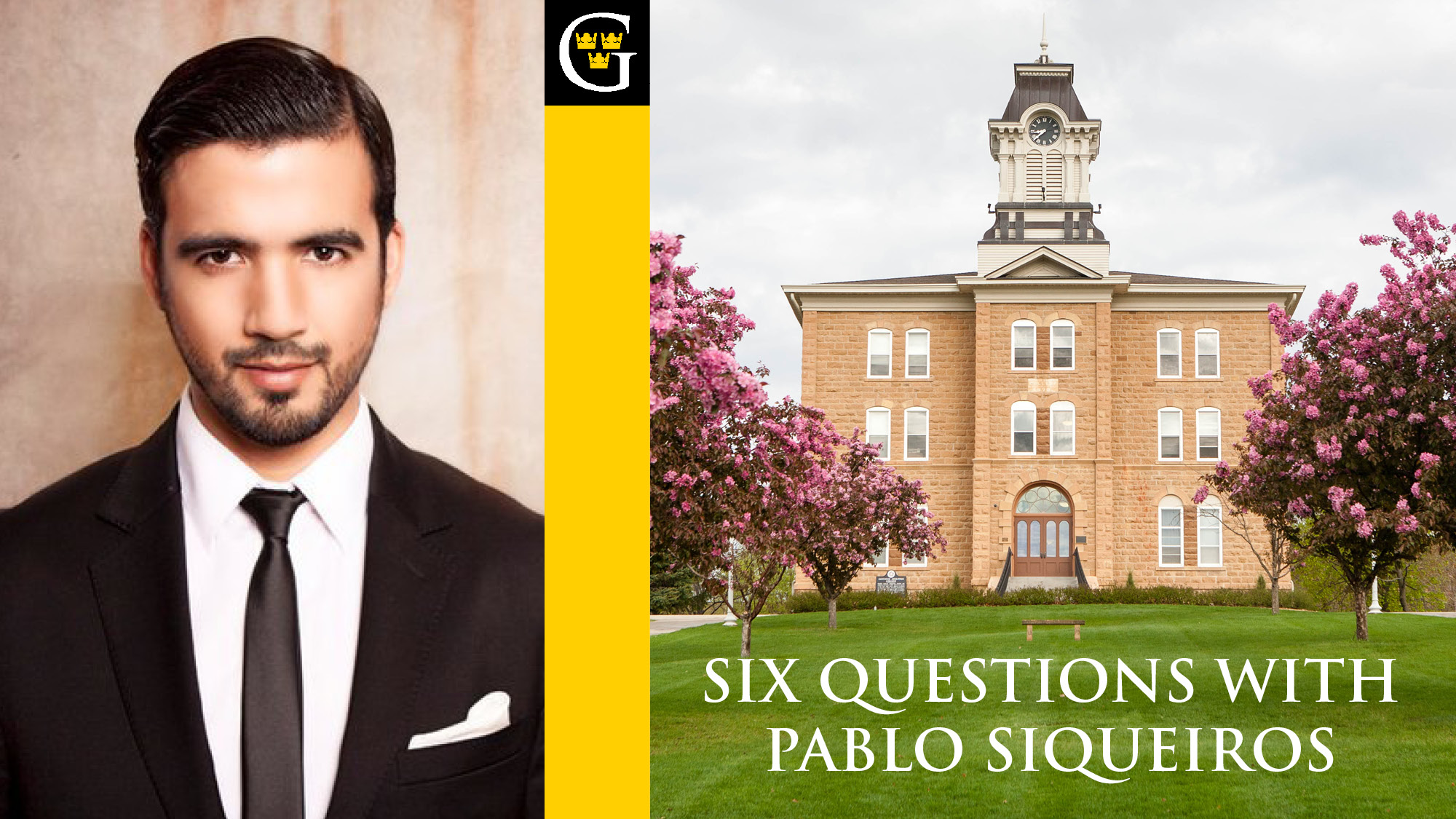—Interview by Sara Cronk ’22
On October 12, artists from the Minnesota Opera will present works from great operatic composers at Gustavus Adolphus College. During their visit, the singers will also spend time working with students in a master class. The concert is at 7:30 PM in Jussi Björling Recital Hall. It is free and open to the public. Tickets are available at gustavustickets.com or 507-933-7590.
We asked Minnesota Opera Teaching Artist and baritone Pablo Siqueiros a few questions about the upcoming visit and concert, as well as his experience in opera.
Gustavus: What makes opera relevant in the today’s world? How does opera impact people right now?
Pablo Siqueiros: This is a question I ask myself often. There is some truth to the idea that because opera is an older art form, the stories or general aesthetic are outdated and irrelevant. It can be [that] way, but it doesn’t have to be. There are amazing living composers whose operas tell the stories of the world we live in right now. There are also countless ways to reframe the themes in older works and give them new life. We, as an audience, go see performances to see ourselves in the characters and stories. If we as an opera company didn’t achieve that, then we didn’t do our job.
Gustavus: What experience are you hoping to give the Gustavus audience through this upcoming performance?
PS: Given that the performance is on a college campus, at the very least we hope that our performance gives students a break from thinking about their music history exams or that research paper that’s due on Monday. Our job is to move people; to spark a thought or a feeling that maybe they didn’t know was there. We’re taking the audience on a rollercoaster of emotions and we just hope that the ride was worth their time.
Gustavus: As both a teaching artist and a performer, what are you hoping Gustavus students will learn from working with you?
PS: I think above all, we want to create a meaningful connection between the audience and the performance. Different types of music and stories resonate with different people. So by having a wide variety of pieces, it is our hope that every person in the audience has something to connect to. In terms of working with students directly during the daytime activities, we want students to realize that there is no “right” path to success, and that success can look a number of different ways. Everyone’s path is different, and that’s okay!
Gustavus: What’s one piece of advice you would give to college students hoping to become professional musicians?
PS: Allow yourself to be open to a wide array of opportunities. Sometimes we get stuck thinking about a single version of success. We close ourselves off to other options that could be equally or more fulfilling.
Gustavus: What was the most influential experience that brought you to where you are today?
PS: I’m not sure there was a single most influential experience for me, but if there had to be one, I’d say landing my first professional singing job at the Florentine Opera in Milwaukee. That job opened a lot of doors for me and helped me to create a network of artists and administrators in the opera field. Through that network I was able to pursue opportunities that weren’t in my original plan.
My plan had been to become a professional singer and only work as that for the rest of my life. I didn’t anticipate that [the education] side of the industry could provide an equally, and sometimes more, fulfilling path. As singers who go through rigorous academic programs, we focus so much on our singer-selves that we sometimes completely ignore any other passions and interests that don’t align with what we’re studying. Many of the people I’ve worked with in an administrative setting are, or used to be, singers with advanced degrees in performance. It’s not that they “gave up” on singing. They are using their whole selves to fulfill the other interests and passions they have in addition to singing. The voice is a delicate thing, and the pursuit of a professional singing career is extremely challenging. So, it’s important to ask oneself, “Who am I? What do I value? What can I contribute to the world in addition to my singing?” I don’t say this to discourage people from pursuing performance careers, but more so to remove the stigma from altering our path. When we’re in college, we have no idea where we’ll end up. So why limit the possibilities?

Leave a Reply